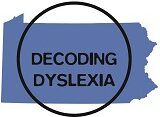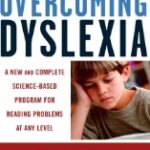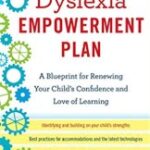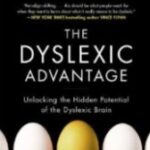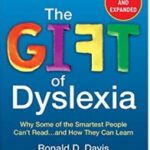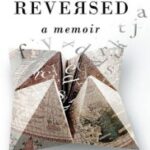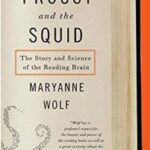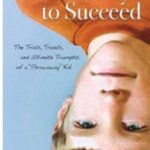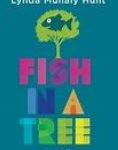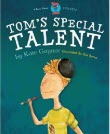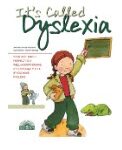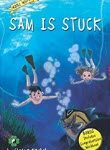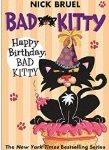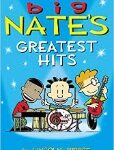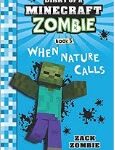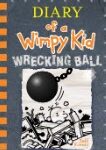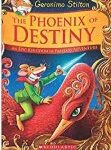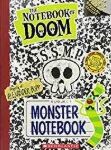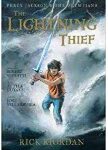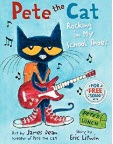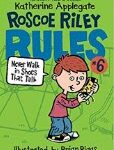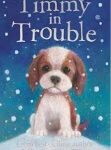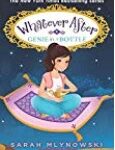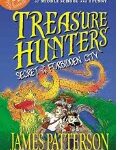Disclaimer: Please note that Decoding Dyslexia PA does not officially endorse, represent, or have a legal connection with any of the resources listed below. These are websites, films, and books that many parents found useful in their personal searches for information on and about dyslexia. Thank you!
DDPA has compiled a list of books related to dyslexia that may be helpful for parents as they navigate the complex journey that is raising a child with dyslexia. Some of these titles may be useful for adults, who are just discovering that they, or another adult they love, has dyslexia. These titles are in no way intended to replace the assessment, diagnosis, and treatment of trained professionals.
- Overcoming Dyslexia: Sally Shaywitz M.D. — From one of the world’s leading experts on reading and dyslexia comes the most comprehensive, up-to-date, and practical book yet to help one understand, identify, and overcome the reading problems that plague American children today. For the one in every five children who has dyslexia and the millions of others who struggle to read at their own grade levels–as well as for their parents, teachers, and tutors–this book can make a difference. Dr. Shaywitz’s book is a trusted source to turn to for information, advice, guidance, and explanation. Her cutting-edge research is translated into an easy-to-follow plan of action, offering help and hope to all who have reading problems and to their families as well. In this book you will learn: -What dyslexia is and why some intelligent, gifted people read slowly and painfully
- Dyslexia Adovate!: How to Advocate for a Child with Dyslexia within the Public Education System by Kelli Sandman-Hurley — This straightforward guide provides the essential information for parents and advocates to understand US law and get the right educational entitlements for a child with dyslexia.
- The Dyslexia Empowerment Plan by Ben Foss — Finally, a groundbreaking book that reveals what your dyslexic child is experiencing—and what you can do so that he or she will thrive
- The Dyslexic Advantage by Brock L. Edie, MD. , MA and Fernette F. Eide, MD. — Did you know that many successful architects, lawyers, engineers—even bestselling novelists—had difficulties learning to read and write as children? In this groundbreaking book, Brock and Fernette Eide explain how 20% of people—individuals with dyslexia—share a unique learning style that can create advantages in a classroom, at a job, or at home
- The Gift of Dyslexia: Why Some of the Smartest People Can’t Read..and How They Can Learn, Revised and Expanded Edition by Ronald D. Davis — This book outlines a unique and revolutionary program with a phenomenally high success rate in helping dyslexics learn to read and to overcome other difficulties associated with it.
- Reversed: A Memoir by Lois E. Letchford — “Reversed” is a memoir of profound determination that follows the highs and lows of overcoming impossible odds, turning one woman into a passionate teacher for children who have been left behind. Nothing is impossible when one digs deep, and looks at students through a new lens
- Prouse and the Squid: The Story and Science of the Reading Brain by Maryanne Wolf – In this ambitious, provocative book, Wolf chronicles the remarkable journey of the reading brain not only over the past five thousand years, since writing began, but also over the course of a single child’s life, showing in the process why children with dyslexia have reading difficulties and singular gifts.
- Fish in a Tree by Lynda Mullaly Hunt–The author of the beloved One for the Murphys gives readers an emotionally-charged, uplifting novel that will speak to anyone who’s ever thought there was something wrong with them because they didn’t fit in.
- Most UnLikely to Succeed by Nelson Lauver —Most Unlikely to Succeed blends humor, storytelling, irony, and raw emotion as it offers inspiration and shares such powerful life lessons as: Finding the strength to get back up after being knocked down. Moving past your fears and discovering your voice. Learning to champion your own cause believing in yourself when no one else does overcoming insurmountable obstacles.
- Wrightslaw: From Emotions to Advocacy: The Special Education Guide by Peter W.D. Wright and Pamela Darr Wright — Wrightslaw: From Emotions to Advocacy, second edition will teach you how to plan, prepare, organize and get quality special education services
- Wrgithslaw: All About IEP’s -In this comprehensive, easy-to-read book, you will find clear, concise answers to over 200 frequently asked questions about IEPs.
- Wrightslaw: All about Tests and Assessments – In this comprehensive, easy-to-read book, you will find clear, concise answers to frequently asked questions about assessments, evaluations, and tests.
Check out these books that are dyslexia friendly books for children.
- Close to Famous by Joan Bauer
- Age Range:10 and up
- Grade Level: 5-6
- Lexile Measure: 540L
- Fish in a Tree: by Lynda Mullaly Hunt .
- Age Range: 10 and up
- Grade Level: 5-6
- Lexile Measure: 550L
- Hudson Hates School by Ella Hudson
- Age Range: 5-8years
- Grade Level: Kindergarten – 3
- Lexile Measure: 600L
- The Alphabet War: A Story about Dyslexia by Burton Robb, Diane and Gail Piazza
- Age Range: 5-7 years
- Grade Level: Kindergarten – 2
- Tom’s Special Talent by Kate Gaynor
- It’s Called Dyslexia by Jennifer Moore-Mallinos
- Age Range: 5 – 6 years
- Sam Is Stuck by Cigdem Knebel
- Age Range: 8-12 years
- Grade Level: 3-7
- Lexile Measuer : 470L
BOOK SERIES
- Bad Kitty series by Nick Bruel
- Age Range: 7 – 10 years
- Grade Level: 2- 5
- Lexile Measure: 610L
- Big Nate series by Lincoln Pierce
- Age Range: 8-12 years
- Grade Level: 307
- Lexile Measure: GN340L
- Diary of a Minecraft Zombie series by Zack Zombie
- Age Range: 6-12years
- Grade Level: 2-6
- Lexile Measure: 580
- Diary of a Wimpy Kid series by Jeff Kinney
- Age Range: 8-12 years
- Grade Level: 3-7
- Fly Guy series by Tedd Arnold
- Age Range: 4-8 years
- Grade Level: Preschool – 3
- Lexile Measure: 380
- Geronimo Stilton series by Geronimo Stilton
- Age Range: 7-10 years
- Grade Level: 2-5
- Lexile Measure: 670L
- Ninja Meerkats: The Clan of the Scorpion series by Gareth P. Jones
- Age Range: 7-9 years
- Grade Level: 4-6
- Lexile Measure: 720L
- The Notebook of Doom series by Troy Cummings
- Grade Level: 2-3
- Age Range: 6-8 years
- Lexile Measure: 470L
- Percy Jackson and the Olympians series by Rick Riordan
- Age Range: 10-14 years
- Grade Level: 2-5
- Lexile Measure 680L
- Pete the Cat series by James Dean
- Age Range: 4-8 years
- Grade Level: Preschool – 3
- Lexile Measure: AD460
- Roscoe Riley Rules series by Katherine Applegate
- Age Range: 6-10 years
- Grade Level: 1-5
- Lexile Measure: 580
- Timmy in Trouble series by Holly Webb
- Grade Level: 2-3
- Whatever After series by Sarah Mlynowski
- Age Range: 8-12 years
- Grade Level: 2-4
- Treasure Hunters series by James Patterson and Chris Garbenstein
- Age Range: 9-12 years
- Grade Level: 3-7
- Lexile Measure: 690L
11 Tips for Encouraging a Love for Reading in your dyslexic child
As parents of a dyslexic child, we all know what a struggle it can be to foster a love of reading. Twenty minutes of reading homework can turn into a full battle scene and two hours missing from your already too short evening. Below are some helpful tips that might just make your reluctant reader a bibliophile (a lover of books)!
- Model Behaviors: If you want your child to read more, let them see YOU reading! Don’t wait to read until the children are in bed, cozy up with your respective books and read at the same time!
- Create Library Days: Nothing, and I mean, nothing molds behavior more than consistent expectations and routine. So get out your over-scheduled calendars and squeeze in a weekly or bi-weekly trip to your local library! While you are there, don’t forget to check out the great programming your local library offers that also engages and encourages your reluctant reader to actually ENJOY time at the library.
- Take Turns: Have your child read 2 pages, then you read the next 2. While this may seem as if your reluctant reader is getting off the hook, reading out loud to your child actually increases vocabulary, improves writing, trains them to be a better listener, and best of all, strengthens the bond between parent and child.
- Audiobooks: Hit the pause on T. Swift (don’t worry T, we’ll always have love for a Pennsylvania girl!)and open up the Audible app, Bookshare, or the audiobook you borrowed during one of your regular trips to the library. Audiobooks are NOT cheating. They are NOT a bandaid or crutch. They do NOT prevent your struggling reader from learning to read. See No. 3 for the many benefits of audiobooks. If you can, pick up a copy of the print book, so that your child can follow along.
- Go Graphic: Graphic novels are known to motivate dyslexics and other struggling readers. There is a huge sense of pride and accomplishment that comes from finishing a page, a chapter, and then the entire graphic novel, which, in turn, leads to a willingness and desire to read more
- Offer an Incentive: Whether your join a summer reading challenge at a local bookstore, or create your own, incentive programs help to provide some much needed motivation for struggling readers.
- Count Magazines: Reading is reading is Reading. Magazines provide a whole new avenue to find material of interest your child. High interest material means a greater likelihood of reading.
- Encourage Choice: Content is not as important as the act of reading. Do you have a child obsessed with dinosaurs, video games or space? Let them choose topics that they are most interested in without your judgment or interference. Do you have a budding chef? Let them read cookbooks and make you their favorite new recipe.
- Read the book, then see the movie: Or vice versa. Sometimes watching the movie first, can make a challenging book seem less intimidating. Tackling one book in a series can lead to a child wanting to read the rest of the series.
- Bring Books to Life: Dyslexics learn best through a multi-sensory approach. Bringing books to life is another way to make reading fun. Do a scavenger hunt. Create a picture collage. Take a field trip. There are many exciting ways to bring books to life.
- Break the Bedtime Rule: Most kids aren’t willing to go to bed precisely when told, so offer them a choice. They can choose to go to bed immediately or to read
